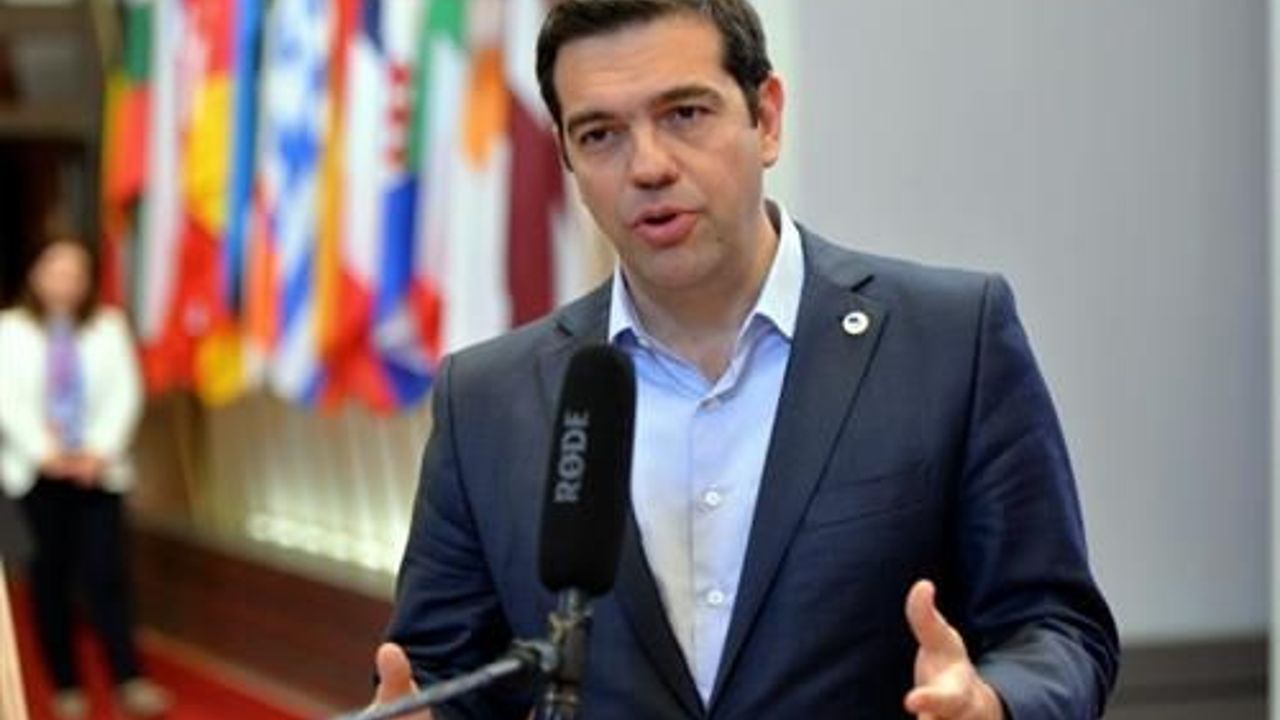Greek PM Tsipras admits 'minor' concessions in bailout talks
Business |
Greek PM Tsipras remarks come after Interior Minister Voutsis has said Greece will accept a bailout agreement, even if it is a 'painful' solution

Font Size:
Amid intense negotiations in Brussels with the Eurogroup which continued all weekend, Greek Prime Minister Alexis Tsipras has admitted to making minor modifications on privatizations in the ongoing bailout negotiations with international creditors.
Tsipras remarks come after Interior Minister Nikos Voutsis said Saturday that Greece would accept a bailout agreement, even if it was a painful solution.
In an article published in the French daily Le Monde Monday, Tsipras said: "The lack of an agreement so far is not due to the supposed intransigent, uncompromising and incomprehensible Greek stance. It is due to the insistence of certain institutional actors on submitting absurd proposals and displaying a total indifference to the recent democratic choice of the Greek people, despite the public admission of the three institutions that necessary flexibility will be provided in order to respect the popular verdict".
He admitted to having made some concessions. Regarding privatizations, a previous sticking point in the negotiations, he said: "Privatizations have been promoted by the institutions that neither created growth perspectives nor transfer of funds to the real economy and the unsustainable debt.
The Greek premier added, We accepted to move forward, with some minor modifications, on privatizations to prove our intention of taking steps towards approaching the other side.
We also agreed to implement a major VAT [Value Added Tax] reform by simplifying the system and reinforcing the redistributive dimension of the tax in order to achieve an increase in both collection and revenues, he said.
As Greece runs out of funds, Tsipras continues to work hard to undo the deadlock that the Greek negotiating team seems to have hit with the institutional creditors -- the IMF, the European Central Bank, and the EU.
Intense wrangling continued on Sunday and Monday between Tsipras and German Chancellor Angela Merkel to try to work out the fine points.
Sources close to the bailout negotiations in Brussels reported that the current point that divides the two sides is the allocations of the Greek government budget.
Greece has said it is no longer obliged to make a large payment to the International Monetary Fund; the payment has been postponed until the end of June when the Greek government must make a total payment of about $2 billion.
Earlier, Voutsis had said that the country did not have funds to make the payments to the International Monetary Fund on May 24
Meanwhile, Economy Minister George Stathakis told the Italian newspaper Corriere della Sera recently that he foresaw the deal will close within a few days" and that the "Eurogroup will approve the financing that follows".
Greece is hoping to unlock the next 7.2 billion ($7.8 billion) tranche of the bailout funds, thus gaining needed liquidity to run the country's banks and public services as well as enabling it to pay off its upcoming obligations to creditors.
Anadolu Agency
Tsipras remarks come after Interior Minister Nikos Voutsis said Saturday that Greece would accept a bailout agreement, even if it was a painful solution.
In an article published in the French daily Le Monde Monday, Tsipras said: "The lack of an agreement so far is not due to the supposed intransigent, uncompromising and incomprehensible Greek stance. It is due to the insistence of certain institutional actors on submitting absurd proposals and displaying a total indifference to the recent democratic choice of the Greek people, despite the public admission of the three institutions that necessary flexibility will be provided in order to respect the popular verdict".
He admitted to having made some concessions. Regarding privatizations, a previous sticking point in the negotiations, he said: "Privatizations have been promoted by the institutions that neither created growth perspectives nor transfer of funds to the real economy and the unsustainable debt.
The Greek premier added, We accepted to move forward, with some minor modifications, on privatizations to prove our intention of taking steps towards approaching the other side.
We also agreed to implement a major VAT [Value Added Tax] reform by simplifying the system and reinforcing the redistributive dimension of the tax in order to achieve an increase in both collection and revenues, he said.
As Greece runs out of funds, Tsipras continues to work hard to undo the deadlock that the Greek negotiating team seems to have hit with the institutional creditors -- the IMF, the European Central Bank, and the EU.
Intense wrangling continued on Sunday and Monday between Tsipras and German Chancellor Angela Merkel to try to work out the fine points.
Sources close to the bailout negotiations in Brussels reported that the current point that divides the two sides is the allocations of the Greek government budget.
Greece has said it is no longer obliged to make a large payment to the International Monetary Fund; the payment has been postponed until the end of June when the Greek government must make a total payment of about $2 billion.
Earlier, Voutsis had said that the country did not have funds to make the payments to the International Monetary Fund on May 24
Meanwhile, Economy Minister George Stathakis told the Italian newspaper Corriere della Sera recently that he foresaw the deal will close within a few days" and that the "Eurogroup will approve the financing that follows".
Greece is hoping to unlock the next 7.2 billion ($7.8 billion) tranche of the bailout funds, thus gaining needed liquidity to run the country's banks and public services as well as enabling it to pay off its upcoming obligations to creditors.
Anadolu Agency
Video News

WORLD
26 Mart 2024 - 11:18
Photo News






